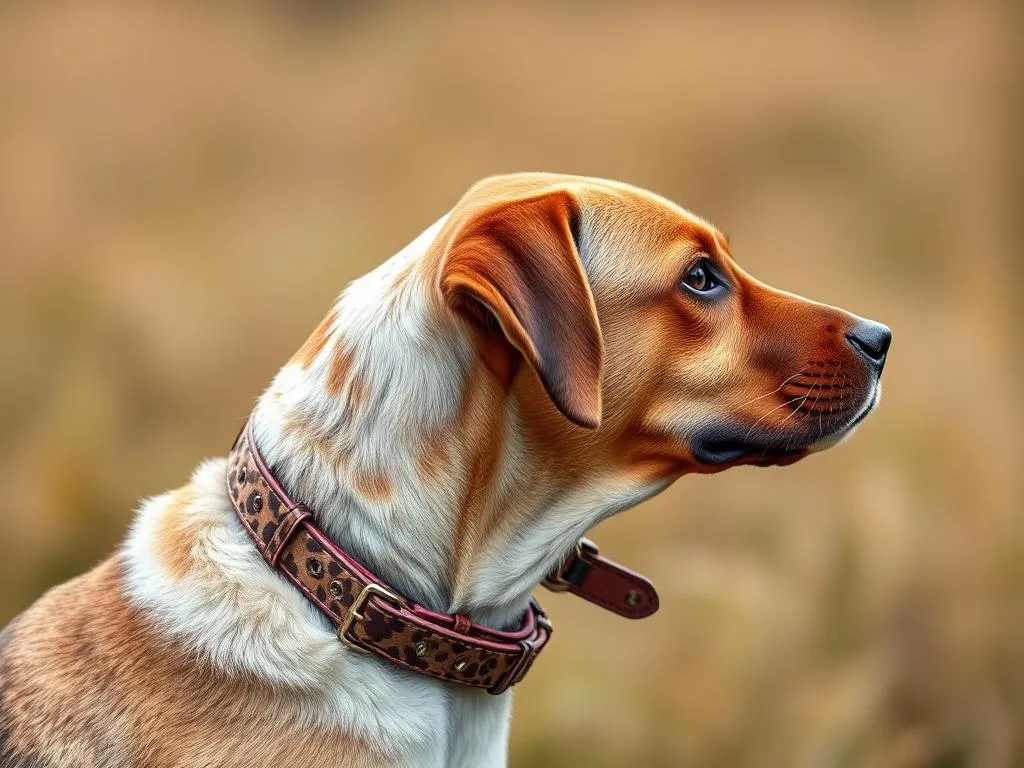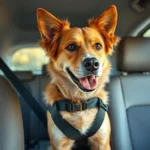
Using the right collar for your hunting dog is crucial for both performance and safety in the field. A good hunting dog collar not only enhances your dog’s effectiveness but also protects them from potential hazards. In this article, we will explore various types of hunting dog collars, key features to look for, and the top five collars on the market today. This guide is designed for hunters, dog owners, and trainers who want to make informed decisions about the best gear for their canine companions.
Understanding Hunting Dog Collars
Types of Hunting Dog Collars
When it comes to collars, there are several types tailored to different needs:
-
Flat Collars: The most common type, flat collars are simple and effective for everyday use. They come in various materials and sizes.
-
Harnesses: Harnesses distribute pressure more evenly across the dog’s body and are ideal for dogs that pull or have respiratory issues.
-
Training Collars: These include shock collars and vibration collars that assist in training and behavior modification. They can be effective tools for reinforcing commands but should be used responsibly.
-
GPS Tracking Collars: These collars help locate your dog in the field, offering peace of mind during hunting trips.
Purpose of Each Type
Each type of collar has its unique advantages:
-
Flat Collars are great for identification and basic control.
-
Harnesses are excellent for dogs that may need extra support or training.
-
Training Collars can help establish commands and improve obedience, making them useful for both novice and experienced hunters.
-
GPS Tracking Collars provide real-time location tracking, significantly enhancing safety and retrieval efforts during hunts.
Key Features to Look for in Hunting Dog Collars
When selecting the best hunting dog collar, consider the following features:
Durability
A hunting dog collar needs to withstand various environments and conditions. Look for collars made from high-quality materials such as nylon or leather. These materials are not only tough but also resistant to weather elements and wear and tear.
Adjustability and Comfort
A well-fitted collar is crucial for your dog’s mobility and comfort. An adjustable collar allows for a snug fit, preventing chafing or discomfort. Padding and ergonomic designs are also important, especially for long hunting sessions.
Safety Features
Safety should always be a priority. Look for collars with reflective materials to ensure visibility during low-light conditions. Additionally, breakaway clasps can prevent choking hazards if the collar gets caught on something.
Technology Integration
Modern collars often come with advanced features. GPS tracking capabilities can be a game-changer for tracking your dog in the field. Smart collars with connectivity features allow you to monitor your dog’s activity levels and health metrics, adding another layer of functionality.
Top 5 Best Hunting Dog Collars
Here are five of the best hunting dog collars currently available, highlighting their features, pros and cons, and value.
Product 1: Garmin Alpha 100
The Garmin Alpha 100 is a top-tier GPS tracking collar that combines training features with location tracking.
-
Description and Features: This collar offers GPS tracking with a range of up to 9 miles. It allows for tone, vibration, and stimulation training modes.
-
Pros: Excellent tracking range, multiple training modes, durable construction.
-
Cons: Pricey compared to standard collars.
-
Pricing and Value: Around $800, suitable for serious hunters who prioritize tracking and training capabilities.
Product 2: SportDOG 425X
The SportDOG 425X is a versatile training collar designed for various dog breeds.
-
Description and Features: With a range of up to 500 yards, this collar includes 7 levels of static stimulation and vibration options.
-
Pros: Waterproof, lightweight, and offers long battery life.
-
Cons: Limited range compared to GPS collars.
-
Pricing and Value: Priced at approximately $250, it’s a great investment for training purposes.
Product 3: PetSafe Remote Trainer
The PetSafe Remote Trainer is designed for pet owners looking for a reliable training tool.
-
Description and Features: This collar offers 15 levels of static stimulation, vibration, and tone options, suitable for dogs over 8 pounds.
-
Pros: Affordable, easy to use, and good battery life.
-
Cons: Not suitable for larger breeds due to limited range.
-
Pricing and Value: Approximately $150, ideal for casual hunters and trainers.
Product 4: Tractive GPS Tracker
The Tractive GPS Tracker allows for real-time tracking of your dog, ensuring you always know where they are.
-
Description and Features: This collar provides unlimited range tracking and live location updates via a smartphone app.
-
Pros: Affordable subscription service, lightweight, and easy to use.
-
Cons: Battery life could be better, requires cellular service.
-
Pricing and Value: Around $50 for the device, plus a subscription fee, making it a budget-friendly option for tracking.
Product 5: Ruffwear Front Range Harness
The Ruffwear Front Range Harness is a comfortable alternative to traditional collars.
-
Description and Features: This harness features two leash attachment points and is designed for comfort and mobility.
-
Pros: Great for active dogs, adjustable fit, and easy to put on.
-
Cons: Not a traditional collar, so may not suit all hunting needs.
-
Pricing and Value: Priced around $60, it’s a great choice for everyday use and light hunting.
How to Choose the Right Collar for Your Hunting Dog
Assessing Your Dog’s Needs
Before making a purchase, consider your dog’s breed, size, and behavior. Different breeds have different needs, and a collar that works for one may not be suitable for another. Additionally, think about your hunting style and the environments you frequent. If you often hunt in dense woods, a collar with an excellent tracking feature may be essential.
Budget Considerations
When it comes to collars, quality often correlates with price. While it may be tempting to go for the cheapest option, investing in a high-quality collar can pay off in durability and performance. Consider the long-term investment versus short-term savings. A good collar can last for years if properly maintained.
Expert Recommendations
Consult with trainers and hunting professionals to gather insights on what collars work best in the field. Their experience can guide you toward a collar that meets your specific needs.
Maintenance and Care for Hunting Dog Collars
Regular Cleaning and Inspection
To prolong the life of your collar, regular cleaning is essential. For nylon collars, a simple wash with soap and water will suffice. Leather collars may require special conditioners to maintain their quality. Inspect for signs of wear, such as fraying or cracking, and replace the collar if necessary.
Storing Collars
Proper storage is key to maintaining your collar’s integrity. Store collars in a cool, dry place away from direct sunlight, which can degrade materials over time. Avoid leaving collars outdoors, as exposure to the elements can lead to deterioration.
Adjusting Collars as Dogs Grow
As your dog matures, their collar may need adjustments for comfort and safety. Regularly check the fit to ensure it’s not too tight or too loose, especially for puppies and young dogs.
Conclusion
Choosing the right collar for your hunting dog is essential for a safe and enjoyable experience in the field. A well-selected collar can enhance your dog’s performance, ensuring they are effective and safe while hunting. By considering your dog’s unique needs, key features, and the options available, you can make an informed decision that will benefit both you and your canine companion.
FAQs
What is the best collar for a hunting dog?
There is no one-size-fits-all answer, as the best collar depends on your dog’s needs. For tracking, GPS collars like the Garmin Alpha 100 are excellent, while training collars like the SportDOG 425X are great for obedience.
Are GPS collars worth the investment?
Yes, GPS collars offer peace of mind by allowing you to track your dog in real-time, making them invaluable for hunters.
How do I train my dog to use a training collar?
Start by introducing the collar gradually, associating it with positive experiences. Use the collar during training sessions to reinforce commands effectively.
Can I use a regular collar for hunting?
While regular collars can be used, they may lack features that enhance safety and performance, such as tracking or training capabilities.
How often should I replace my dog’s collar?
Inspect your dog’s collar regularly for signs of wear. Replace it if it shows significant wear or if it no longer fits properly.









